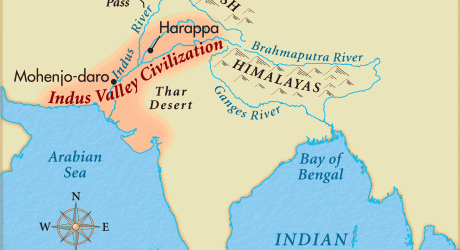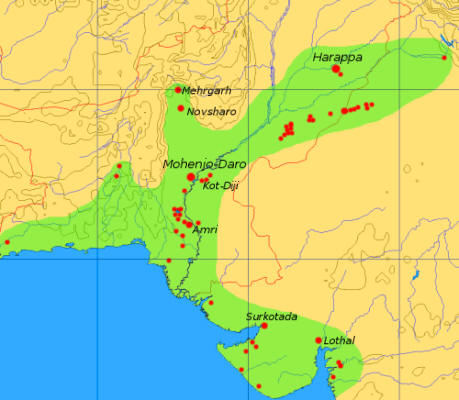Where Did Hindu Originate: Unveiling Ancient Roots
Have you ever wondered about the roots of Hinduism, one of the world’s oldest religions? Imagine uncovering the story behind a belief system that has shaped millions of lives over thousands of years.
We will explore where Hinduism originated, delving into its rich history and cultural significance. You will gain insights that might just change the way you perceive spirituality and tradition. By the end, you’ll have a deeper understanding of how this ancient religion continues to influence the world today.
Curious to learn more? Keep reading to discover the fascinating origins of Hinduism.

Ancient Civilizations
The Indus Valley was home to one of the first great civilizations. It flourished around 2500 BCE. People there built big cities like Mohenjo-Daro and Harappa. They had advanced town planning. Streets were straight and houses had bathrooms. They also had a strong trade system. They traded with places far away. Religion played a part in daily life. Early forms of Hindu rituals may have started here. Many scholars think Hindu culture began to form in this valley.
The Vedic period came after the Indus Valley. It started around 1500 BCE. During this time, the Vedas were written. These are sacred texts. They are very important to Hinduism. People in this era were called Aryans. They spoke Sanskrit. The Vedic culture had many gods and goddesses. They performed rituals to honor them. The Vedic age shaped many Hindu traditions. It laid the foundation for future Hindu beliefs.
Sacred Texts
The Rigveda is one of the oldest sacred texts. It consists of hymns that praise different gods. These hymns were sung during rituals. They hold knowledge about the universe and life. The Rigveda talks about nature, magic, and gods. It also describes the human soul. People learned from it and passed it down. It teaches values like truth and duty. The Rigveda has inspired many other texts. It is a cornerstone of Hindu beliefs.
The Upanishads explore deep spiritual ideas. They focus on the inner self and ultimate reality. These texts seek to answer big questions. What is the purpose of life? What happens after death? The Upanishads guide people to find peace and wisdom. They talk about meditation and self-awareness. Important concepts like karma and reincarnation are explained. They encourage learning and self-discovery. The Upanishads have influenced many thinkers.
Philosophical Foundations
Dharma is a key idea in Hinduism. It means duty or law. Everyone has a role to play. People should follow their own path. This keeps the world in balance. Dharma is like a guide for life. It tells us how to live well. Respect for others is important. Helping those in need is part of it too.
Karma is about actions and their results. Good actions bring good results. Bad actions bring bad results. It’s like a natural law. Reincarnation means being born again. Your next life depends on your karma. Life is a cycle of birth and rebirth. The goal is to do good and break this cycle. This leads to peace and happiness.
Cultural Evolution
Art tells stories of the past. In ancient India, art grew with religion. Temples were not just places to pray. They showed amazing designs. These designs were unique. Stone carvings and paintings were common. Colors were bright and bold. Artists used nature and myths for ideas. Architecture was grand and detailed. Buildings had many pillars and arches. These structures stood strong for years.
Society was divided into groups. Each group had a role. This was called the caste system. People born into a caste stayed there. Priests were at the top. They were called Brahmins. Warriors and rulers were next. Farmers and traders followed. At the bottom were laborers. Everyone had duties to fulfill. The system was strict. It helped keep order in society. But it also limited change.
Geographical Spread
Hinduism started in the Indus Valley, which is now in India and Pakistan. People moved from this area to other places over time. This movement helped spread Hindu ideas and practices. Traders and travelers played a big role. They shared stories and beliefs during their journeys. As a result, Hinduism reached far lands. These movements influenced many cultures and regions.
Hinduism had a strong impact on nearby areas like Nepal, Sri Lanka, and Southeast Asia. Temples and festivals in these places show Hindu influence. People in these regions adopted many Hindu customs. This led to a mix of cultures and traditions. Ancient texts and epics were shared and cherished. Hindu art and architecture left a big mark too.
Historical Influences
Hinduism grew through many cultural interactions. Traders brought new ideas and beliefs. These ideas blended with local traditions. This fusion formed new practices. Art and science from other lands also played a role. Greek and Persian cultures had an influence. They introduced new concepts and philosophies. This mix made Hinduism rich and diverse.
Great empires shaped Hinduism’s path. The Maurya Empire supported Buddhism but also respected Hindu practices. The Gupta Empire was a golden time for Hindu art and culture. Conquests brought new rulers and ideas. Each conqueror left a mark. Some rulers promoted Hinduism to gain people’s support. This helped Hinduism spread and thrive.
Modern Interpretations
Originating over 4,000 years ago in the Indian subcontinent, Hinduism is one of the world’s oldest religions. Its diverse practices and beliefs have evolved, influencing cultures globally. Modern interpretations continue to explore its rich history and philosophies.
Contemporary Practices
Many people follow Hindu traditions today. Yoga and meditation are very popular. These practices help calm the mind. They also keep the body fit. People celebrate festivals like Diwali and Holi worldwide. These festivals bring joy and unity. They teach lessons of good over evil. Temples can be found in many countries. They are places for prayers and gatherings. People read sacred texts like Bhagavad Gita. These texts offer wisdom and guidance. They help in making life decisions.
Global Influence
Hindu culture has spread across the globe. Many people enjoy Indian music and dance. Bollywood movies are watched in many countries. They entertain and tell interesting stories. Indian food is also loved by many. Dishes like curry and naan are favorites. People wear colorful Indian clothes during festivals. These clothes are often bright and beautiful. Hindu symbols are used in art and jewelry. They carry deep meanings and beliefs. People of all backgrounds embrace these influences.


Conclusion
Hinduism began thousands of years ago in the Indian subcontinent. It evolved through diverse cultures and ancient traditions. Its roots lie deep in history, shaping beliefs and practices. Ancient texts like the Vedas and Upanishads guided its growth. Hinduism embraces various gods, philosophies, and rituals.
It influenced art, music, and society over centuries. Today, it stands as one of the world’s oldest religions. A rich tapestry of stories and teachings continues to inspire millions. Hinduism’s origin is a blend of history, spirituality, and cultural evolution.
A legacy of faith and wisdom that spans ages.


